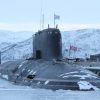On a midsummer morning six years ago, Ziad Abdulqader Nasir’s short walk to Friday prayers at Mosul’s Great Mosque of al-Nuri, one of Iraq’s oldest shrines, was abruptly interrupted by the arrival of stern men carrying guns.
Nasir and his neighbours were ushered inside, some of the newcomers set up cameras, and others sat the puzzled worshippers in neat lines on the carpet.
“I said to my son Yousuf, someone important was coming,” Nasir recalled. “They were mostly foreigners. They told us to turn off any phones with cameras, and then all the signals jammed. Gunmen were lining the streets as far as 500 metres away. A guy announced that the caliph would give a sermon, and then Abu Bakr al-Baghdadi appeared.”
That day, 4 July 2014, marked the only public appearance of the self-declared leader of the Islamic State before his return to years in hiding, then death in exile last year. His appearance prompted tens of thousands of people to rally to the cause he proclaimed. It also accelerated the unravelling of much of Syria and Iraq, both which remain broken and unreconciled.
Abu Bakr al-Baghdadi emerges from shadows to rally Islamist followers
Read more
Six years on, at least 400,000 Iraqis who fled from Isis, or who lived in areas where the extremists held sway, remain in internment camps across the north of the country, forbidden to return home, or unwilling to attempt it.
Most are Sunni Iraqis, like Baghdadi and his followers, who fear that after the victory over Isis, they are no longer considered partners in postwar Iraq.
The displaced people are housed in crumbling camps across northern Iraq and in the territory of the Kurdish regional government. The camps were established in 2016 as temporary homes for those fleeing the fight for Mosul. But the nine-month battle destroyed much of the city and its satellite towns, and afterwards the victors – Iraqi security forces and Shia militia groups – laid down roots in the region.
The shift in the balance of power appears permanent to some displaced residents, who say they had no option but to tolerate Isis and now fear being stigmatised by a rival sect.
Since the jihadis’ last stand on the banks of the Euphrates River, in March last year, there has been next to no progress in returning displaced people. In some cases, whole communities have been forbidden from traveling home; in others, the consolidation of militia groups, under the banner of the Popular Mobilisation Units, has proved too big a barrier.
“They are Iranian loyalists,” said Taha Saber Saleh, who has spent the past four years in a tent outside the ruined town of Hassan Sham in Iraqi Kurdistan. “Iraq will not be united again until Iranian groups leave the country.”
In the nearby Debaga camp, Saddam al-Zunaidi, from the town of Ba’aj, between Mosul and the Syrian border, said he would never go home. “The militias have taken my home, and they are not allowing a single person back,” he said. “This is a strategic area for them. Ba’aj for me is finished.”
Baghdad seems unwilling to confront what to do about Iraq’s huge numbers of displaced people, and the implications of nearly all of them hailing from the same vanquished sect. “Let that wait for another time,” said one senior minister, who did not want to be named. “The country needs to be put back together slowly. Isis caused much chaos.”
Aid organisations and humanitarian groups, however, say that delays in finding solutions could create new and permanent faultlines in Iraqi society.
“This failure to assimilate mostly Arab, almost all Sunnis, is going to have devastating long-term implications,” said Belkis Wille, a senior crisis and conflict researcher at Human Rights Watch. “It’s building more anger and resentment in a country that seems willing to carry out collective punishment and punish women and children who did not commit crimes.
“Since the battles against Isis wrapped up, and the areas that were formerly under their control have returned to the control of the Iraqi government, very little has been done to foster reconciliation. Instead, the government has focused on things like prosecutions, that are tailored to meting out state revenge to anyone who may have helped or supported Isis in any way.
“For the last four years, this lack of prioritising reconciliation has meant that thousands of predominantly female-headed households, with young children and teenagers, have been unable to return home, and have been excluded from every state structure. These children already missed three years of school under Isis and have now spent several more years unable to enter the classroom, because authorities are refusing to issue them birth certificates.
“They have no access to hospitals, or forms of basic assistance that all Iraqis have. Without documentation, or security clearance, they are prevented from entering any government building, including a courthouse to seek judicial remedy if their home is being occupied.”
The prime minister of the Kurdish regional government, Masrour Barzani, said: “We are very concerned about the failures here. Unfortunately, Baghdad has not taken any responsibility to take care of these people. This costs us $1.5bn a year and Iraq has not contributed. There has to be a way to deal with this. Giving the people a decent life for as long as they stay in the camps is one thing, but finding a future that safeguards us all is just as important.”
Next to the ruins of the Nuri mosque, which Isis blew up in June 2017 during the battle for Mosul, Haji Mudher, who distributes government-supplied cooking oil and flour to local people, said his return to the city had been free of intimidation. Across the road, workers were preparing to rebuild the mosque’s minaret, with Unesco and Emirati donations.
“Baghdadi’s appearance here was a dark but important time in Iraqi’s tragic history,” he said.
Shiraz Maher, director of the international centre for the study of radicalisation at King’s College London, said it was a crucial moment in the rise and fall of the terror group. “Part of the mythology surrounding the notion of a caliph is that he is known in public and isn’t hidden away in some kind of occultation. When Baghdadi appeared on the pulpit of the Nuri mosque to declare the caliphate, that’s precisely what he was doing. It was dramatic and carefully stage-managed theatre, an act of brazen defiance to show a man in command of his terrain.”
The appearance may not have been quite as assured as it seemed, however. “I was in the front row,” said Nasir. “Next to me was a guy who looked exactly like him, even wearing the same robes. When Baghdadi finished the sermon, he walked outside with his body double. There were four Landcruisers waiting, and each went in a different direction.”
Additional reporting by Nechirvan Mando

























































Свежие комментарии